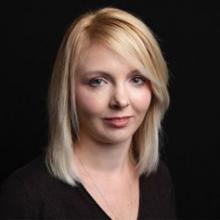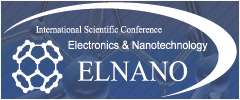Olena Kulyk

In 2011 Dr. Kulyk obtained a master's degree in physical and biomedical electronics with honours.
In 2015, she completed her PhD in Great Britain as part of a joint project between the University of St Andrews, Ninewells Hospital in Dundee and Ambicare Health Ltd in Livingston, receiving a prestigious scholarship from the Scottish Universities Alliance SUPA and developing portable and wearable optoelectronic devices for tissue monitoring, skin cancer diagnosis and treatment. During the PhD, she worked as a teaching assistant of laboratory classes, including electronics, physics, optics, biomedical imaging, fluorescence and Raman spectroscopy.
From 2015 to 2019, she worked as a researcher at the ELI Beamlines center in the Czech Republic, a world leader in petawatt-scale lasers based on the amplification of chirped pulses, which was founded based on the proposal of the 2018 Nobel laureate in physics, Gerard Moore. There, she focused on developing a research station for single-particles vacuum experiments involving viruses and proteins. She participated in numerous scientific initiatives at synchrotron and laser research centers, including free electron lasers (SLAC in the USA; FERMI in Italy; EuropeanXFEL, DESY and TU Berlin in Germany; Uppsala and Gothenburg universities in Sweden). After commissioning the research station for user experiments, she decided to change her career path, moving into the field of intellectual property (IP).
In 2023, she qualified as a European patent attorney while working at the Müller-Boré & Partner law firm in Munich. Subsequently, she joined BASF SE, a world leader in chemical manufacturing, where she worked as an IP Counsel, focusing on IP strategies in digital technologies for chemical applications. Currently she is a registered representative before the European patent office, working at another law firm, Kraus & Lederer, in Munich and focusing on the areas of engineering, electronics, software, AI, and medical systems.



